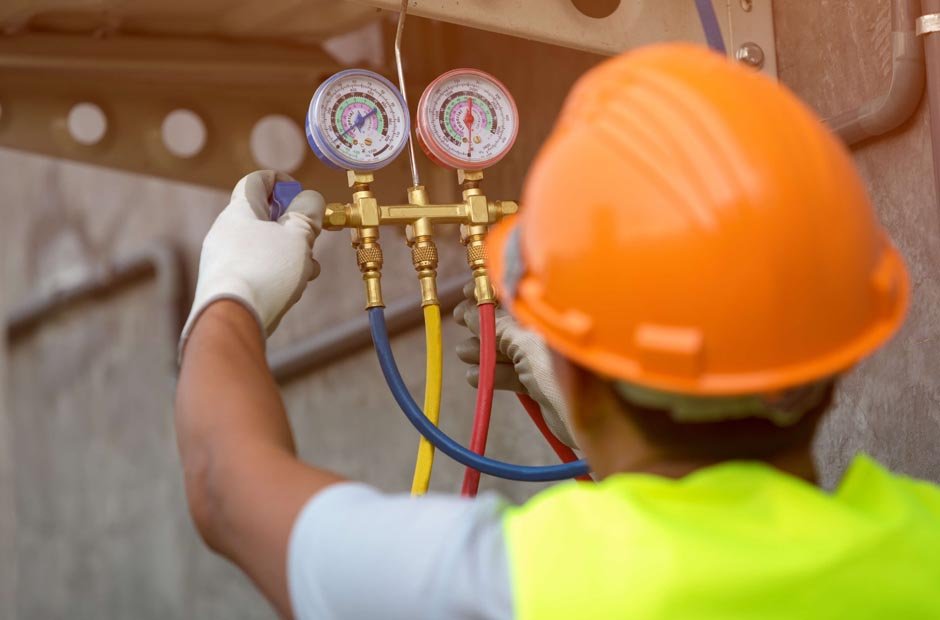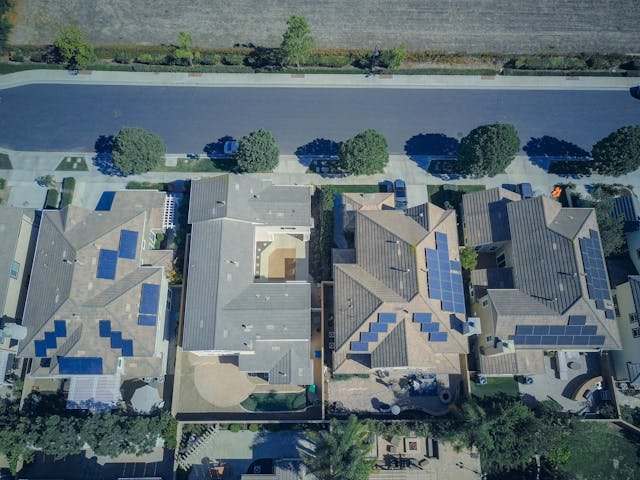Navigating the Complex World of HVAC Systems
HVAC contractors are pivotal in the seamless operation and maintenance of heating, ventilation, and air conditioning (HVAC) systems, ensuring comfortable living and working environments. Their expertise extends beyond mere installation, encompassing the intricate processes of system design, maintenance, and troubleshooting.
These professionals are adept at identifying the subtle nuances that affect system performance, from airflow dynamics to thermal load calculations. They work diligently to ensure that each component functions harmoniously, providing an optimal balance between indoor air quality and energy efficiency. The role of an HVAC contractor is multifaceted, involving regular inspections and assessments to preempt potential issues that could disrupt system efficiency or lead to costly repairs.
The Diagnostic Expertise of HVAC Contractors
In the realm of HVAC maintenance and repair, the ability to accurately diagnose and rectify issues is what sets seasoned contractors apart. These specialists employ a systematic approach to troubleshooting, combining their deep technical knowledge with advanced diagnostic tools. They meticulously analyze various system components, such as compressors, heat exchangers, and refrigerant levels, to identify discrepancies that could impede performance.
Through thermal imaging, pressure testing, and airflow analysis, they can pinpoint and resolve even the most elusive problems, ensuring that the system operates at peak efficiency. This diagnostic prowess not only mitigates immediate concerns but also helps in strategizing long-term maintenance plans to prevent recurrent issues.
Optimizing Performance through Regular Maintenance
The longevity and efficiency of HVAC systems are heavily reliant on regular maintenance conducted by skilled contractors. This preventative strategy is crucial in identifying wear and tear before it escalates into major malfunctions.
Routine servicing includes cleaning air filters, inspecting ductwork, and verifying system controls, which collectively contribute to maintaining optimal performance. Moreover, regular maintenance sessions provide an opportunity for contractors to detect and address energy inefficiencies, thereby reducing the environmental footprint of the system. These activities not only prolong the lifespan of HVAC units but also ensure they operate within the parameters of environmental sustainability and energy conservation.
The Intricacies of HVAC System Installation
The installation of an HVAC system is a complex endeavor that requires meticulous planning and execution. Contractors must have a thorough understanding of the specific requirements of the space, including size, layout, and insulation properties, to select and install the most appropriate system. This process involves detailed calculations to ensure the capacity and functionality of the system align with the needs of the building, taking into account factors like climate, occupancy, and architectural design.
The installation phase encompasses the careful integration of various components, including ductwork, piping, and electrical connections, all of which must be perfectly synchronized to achieve efficient and effective climate control. The expertise of HVAC contractors is crucial in navigating the myriad considerations involved in system installation, ensuring a setup that is tailored to provide maximum comfort and efficiency.
Future-Proofing HVAC Systems: Upgrades and Innovations
The HVAC industry is continually evolving, with new technologies and methodologies emerging to enhance system performance and environmental sustainability. HVAC contractors are at the forefront of integrating these innovations into existing systems, ensuring they meet the current and future needs of users.
They guide clients through the process of upgrading to more energy-efficient models, incorporating smart thermostats, and leveraging renewable energy sources. These upgrades not only improve the functionality and efficiency of HVAC systems but also align with global trends towards energy conservation and reduced carbon emissions. Contractors play a critical role in educating clients about the benefits of these advancements, ensuring that systems are not only compliant with current standards but are also adaptable to future technological developments.
Conclusion
HVAC contractors play a pivotal role in the seamless functionality of climate control systems, serving as the backbone for maintaining optimal indoor conditions. Their extensive knowledge and skills in system design allow them to tailor HVAC solutions that not only meet but exceed the requirements of diverse spaces, ensuring every corner of a building receives adequate ventilation and temperature control. These professionals are not just fixers but also guardians of air quality, employing maintenance strategies that prioritize energy efficiency and sustainability. Their troubleshooting acumen is unmatched, enabling them to swiftly identify and rectify issues, thereby minimizing downtime and discomfort.
Moreover, HVAC contractors are committed to staying abreast of technological advancements, continually upgrading their expertise to incorporate the latest innovations in the field. This dedication not only enhances the performance of the systems they manage but also ensures that these systems remain in harmony with environmental sustainability goals. As the HVAC industry evolves, these contractors are the catalysts for integrating new technologies, ensuring that buildings are equipped with the most advanced, eco-friendly, and cost-effective climate control solutions available.
















